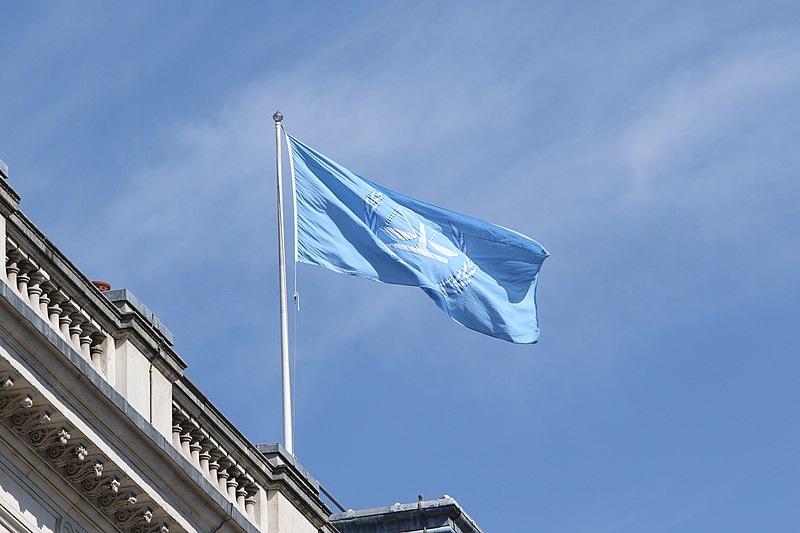Myanmar’s junta government was dealt with a blow by the International Court of Justice at The Hague last week. The ICJ ruled that the lawsuit over Myanmar’s treatment of the Rohingya Muslim minority will proceed.
Friday last week, the ICJ rejected the objections of Myanmar’s junta government when it ruled to proceed with the lawsuit against Myanmar over its alleged genocide of Rohingya Muslims.
This comes as the junta objected to the lawsuit filed by Gambia back in 2019, backed by the 57-member Organization for Islamic Cooperation, looking to hold Myanmar accountable and prevent further killings.
The junta government said Gambia had no standing to sue Myanmar at the ICJ. However, the ICJ’s presiding judge, Joan Donoghue, said Gambia does have standing as one of the countries that signed the 1948 Genocide Convention, which would allow them to take action and prevent genocide, and that the ICJ had jurisdiction over the case.
“Gambia, as a state party to the genocide convention, has standing,” said Donoghue, reading a summary of the ruling by the 13-member panel.
The court will proceed to hear the case against Myanmar. The suit will take years.
Gambia’s justice minister Dawda Jallow welcomed the ruling by the ICJ, expressing confidence that their lawsuit against Myanmar would succeed. A representative for Myanmar said the state would do what it can to protect the country’s “national interest” in the proceedings moving forward. Bangladesh’s foreign ministry also welcomed the ruling.
This also comes as the UN fact-finding mission found that in 2017, the Myanmar military carried out a campaign to drive 730,000 Rohingya Muslims into Bangladesh, which involved “genocidal acts.”
Myanmar is still in the midst of civil unrest due to the coup staged by the generals, ousting leader Aung San Suu Kyi and members of the elected government in February last year. The coup has resulted in widespread protests in which the military engaged in a bloody crackdown, killing hundreds and detaining thousands.
Earlier this month, the junta leader Min Aung Hlaing visited Russia as part of a private trip. Min Aung Hlaing met with top defense officials in Moscow, with both sides agreeing to strengthen defense cooperation.



 Trump Warns Iran as Gulf Conflict Disrupts Oil Markets and Global Trade
Trump Warns Iran as Gulf Conflict Disrupts Oil Markets and Global Trade  Israel Declares State of Emergency as Iran Launches Missile Attacks
Israel Declares State of Emergency as Iran Launches Missile Attacks  EU Urges Maximum Restraint in Iran Conflict Amid Fears of Regional Escalation and Oil Supply Disruption
EU Urges Maximum Restraint in Iran Conflict Amid Fears of Regional Escalation and Oil Supply Disruption  Australia Rules Out Military Involvement in Iran Conflict as Middle East Tensions Escalate
Australia Rules Out Military Involvement in Iran Conflict as Middle East Tensions Escalate  HHS Adds New Members to Vaccine Advisory Panel Amid Legal and Market Uncertainty
HHS Adds New Members to Vaccine Advisory Panel Amid Legal and Market Uncertainty  Pentagon Leaders Monitor U.S. Iran Operation from Mar-a-Lago
Pentagon Leaders Monitor U.S. Iran Operation from Mar-a-Lago  Failure of US-Iran talks was all-too predictable – but Trump could still have stuck with diplomacy over strikes
Failure of US-Iran talks was all-too predictable – but Trump could still have stuck with diplomacy over strikes  U.S.-Israel Strike on Iran Escalates Middle East Conflict, Trump Claims Khamenei Killed
U.S.-Israel Strike on Iran Escalates Middle East Conflict, Trump Claims Khamenei Killed  Zelenskiy Urges Change in Iran After U.S. and Israeli Strikes, Cites Drone Support for Russia
Zelenskiy Urges Change in Iran After U.S. and Israeli Strikes, Cites Drone Support for Russia  U.S. Deploys Tomahawks, B-2 Bombers, F-35 Jets and AI Tools in Operation Epic Fury Against Iran
U.S. Deploys Tomahawks, B-2 Bombers, F-35 Jets and AI Tools in Operation Epic Fury Against Iran  Trump to Address Nation as U.S. Launches Strikes in Iran, Axios Reports
Trump to Address Nation as U.S. Launches Strikes in Iran, Axios Reports  Argentina Tax Reform 2026: President Javier Milei Pushes Lower Taxes and Structural Changes
Argentina Tax Reform 2026: President Javier Milei Pushes Lower Taxes and Structural Changes  Trump Announces U.S. Strikes on Iran Navy as Conflict Escalates
Trump Announces U.S. Strikes on Iran Navy as Conflict Escalates  Netanyahu Suggests Iran’s Supreme Leader Khamenei May Have Been Killed in Israeli-U.S. Strikes
Netanyahu Suggests Iran’s Supreme Leader Khamenei May Have Been Killed in Israeli-U.S. Strikes  Middle East Conflict Escalates After Khamenei’s Death as U.S., Israel and Iran Exchange Strikes
Middle East Conflict Escalates After Khamenei’s Death as U.S., Israel and Iran Exchange Strikes  Trump Says U.S. Attacks on Iran Will Continue, Warns of More American Casualties
Trump Says U.S. Attacks on Iran Will Continue, Warns of More American Casualties 































